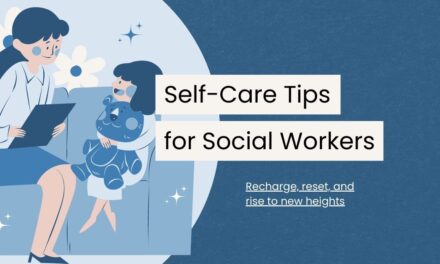Last Updated on July 29, 2023
Are you feeling overwhelmed by the demands of modern life? In today’s fast-paced world, self-care is more crucial than ever. But what if I told you there’s a timeless source of solace and guidance right at your fingertips? Yes, you heard it right! The Bible holds a treasure trove of self care Bible verses that can nourish your soul and bring peace to your busy existence.
In this article, we uncover 32 inspiring verses curated for your self-care needs. Each verse offers comfort, strength, and hope. Let’s dive in and discover how these verses can empower you to find renewal and serenity amidst life’s storms. Embrace divine guidance and unlock the secret to a fulfilled and balanced life. Your journey starts now!
Understanding Self-Care in a Biblical Context
Self-care, from a biblical standpoint, goes beyond mere pampering. It embodies the idea of nurturing oneself physically, emotionally, and spiritually, recognizing that we are fearfully and wonderfully made by God (Psalm 139:14). By taking care of ourselves, we honor the divine creation within us.
The Bible also reminds us of the importance of rest and renewal. In the book of Genesis, God rested on the seventh day, setting an example for us to follow. Jesus himself sought solitude and communion with God through prayer (Mark 1:35). These instances illustrate that rest is not a sign of weakness, but a way to recharge our spirits and gain strength for life’s challenges.
Moreover, the Bible acknowledges the emotional struggles we face. It encourages us to cast our anxieties on God because He cares for us (1 Peter 5:7). King David, in the Psalms, expressed his raw emotions, sharing moments of distress, sorrow, and joy. This openness teaches us to embrace our feelings, seek solace in God, and find comfort in His promises.
Understanding self-care in the biblical context allows us to see it as a journey of growth and spiritual connection. It reminds us that taking care of ourselves is not selfish; it’s an act of stewardship of the gift of life bestowed upon us by our Creator. By embracing self-care through the lens of sacred Scriptures, we nourish our souls, deepen our relationship with God, and live more fulfilling lives.
32 Self Care Bible Verses to Nourish Your Soul
Rest and Renewal
In this fast-paced world, Jesus calls out to us, inviting the tired and burdened to find rest in His loving embrace. Take a pause and retreat to a quiet place for prayer, meditation, and reflection. Just like a caring shepherd leading to green pastures and still waters, God renews and strengthens our weary souls. Here are some self care bible verses for rest and renewal:
“Come to me, all you who are weary and burdened, and I will give you rest.”
Matthew 11:28-30
- What it means: Jesus invites those feeling exhausted and overwhelmed to find solace and rejuvenation in Him.
- How to apply it in your daily life: Regularly set aside time for prayer and meditation, surrendering worries to God, and seeking His peace to renew your spirit.
“Be still, and know that I am God.”
Psalm 46:10
- What it means: This verse encourages us to find tranquility in God’s presence, acknowledging His sovereignty and power.
- How to apply it in your daily life: Incorporate moments of stillness and meditation in your daily routine, focusing on God’s presence and control over your life.
“My presence will go with you, and I will give you rest.”
Exodus 33:14
- What it means: God assures His continuous presence, promising rest and assurance for those who seek Him.
- How to apply it in your daily life: Trust in God’s guidance, knowing that His abiding presence brings comfort and peace during life’s trials.
“He makes me lie down in green pastures, he leads me beside quiet waters, he refreshes my soul.”
Psalm 23:2-3
- What it means: God provides nourishment and renewal for our souls in serene settings.
- How to apply it in your daily life: Spend time in nature, meditating on God’s goodness, and allow His creation to refresh your spirit.
“Come with me by yourselves to a quiet place and get some rest.”
Mark 6:31
- What it means: Jesus advises His disciples to seek solitude for rest and rejuvenation.
- How to apply it in your daily life: Prioritize self-care by setting aside time for quiet reflection and relaxation away from daily distractions.
“I will lie down and sleep in peace, for you alone, O Lord, make me dwell in safety.”
Psalm 4:8
- What it means: Trusting in God’s protection leads to peaceful rest.
- How to apply it in your daily life: Establish a healthy sleep routine, knowing that God watches over you and keeps you safe.
Emotional Well-Being
The Bible acknowledges our emotions and encourages us to find solace in God during times of anxiety and distress. By presenting our worries and concerns to Him in prayer, we experience a peace that transcends understanding. Here are some bible verses for emotional well-being:
“Do not be anxious about anything, but in every situation, by prayer and petition, with thanksgiving, present your requests to God.”
Philippians 4:6-7
- What it means: This verse encourages us to replace anxiety with prayer, leading to God’s peace guarding our hearts and minds.
- How to apply it in your daily life: Practice prayerful reflection during stressful times, expressing gratitude, and presenting concerns to God.
“The righteous cry out, and the Lord hears them; he delivers them from all their troubles.”
Psalm 34:17-18
- What it means: God attentively listens to the cries of the righteous and provides deliverance.
- How to apply it in your daily life: Seek comfort in prayer, knowing that God hears your troubles and offers solace.
“Why, my soul, are you downcast? Why so disturbed within me? Put your hope in God, for I will yet praise him, my Savior and my God.”
Psalm 42:11
- What it means: The psalmist encourages finding hope and praising God despite emotional turmoil.
- How to apply it in your daily life: Cultivate hope through worship and praise, even during challenging emotions.
“So do not fear, for I am with you; do not be dismayed, for I am your God. I will strengthen you and help you; I will uphold you with my righteous right hand.”
Isaiah 41:10
- What it means: God’s presence provides strength and support during fearful and distressing times.
- How to apply it in your daily life: Trust in God’s promises, finding courage and comfort in His presence amidst difficult moments.
“Cast all your anxiety on him because he cares for you.”
1 Peter 5:7
- What it means: The verse reassures us of God’s care, inviting us to release our worries to Him.
- How to apply it in your daily life: Surrender anxieties through prayer, knowing that God cares deeply for your well-being.
“Anxiety weighs down the heart, but a kind word cheers it up.”
Proverbs 12:25
- What it means: Acts of kindness can lift the burden of anxiety from the heart.
- How to apply it in your daily life: Show kindness to others, and experience the uplifting effect it has on your emotions.
Self-Reflection and Growth
Self-care involves looking within, recognizing areas where we need to grow and aligning ourselves with God’s loving plan. Take moments for introspection and seek God’s guidance on your journey of personal growth. Comparisons fade away as you discover the unique purpose God has for you. Here are some bible verses for self-reflection and growth:
“Let us examine our ways and test them, and let us return to the Lord.”
Lamentations 3:40
- What it means: This verse prompts us to assess our actions and realign with God’s will.
- How to apply it in your daily life: Engage in regular self-reflection, seeking growth and alignment with God’s purposes.
“Each one should test their own actions. Then they can take pride in themselves alone, without comparing themselves to someone else.”
Galatians 6:4-5
- What it means: Comparing ourselves to others hinders personal growth.
- How to apply it in your daily life: Focus on individual progress, celebrating achievements without comparison.
“Search me, God, and know my heart; test me and know my anxious thoughts. See if there is any offensive way in me and lead me in the way everlasting.”
Psalm 139:23-24
- What it means: The psalmist invites God to examine and guide their heart and thoughts.
- How to apply it in your daily life: Pray for self-awareness and allow God to reveal areas for improvement and growth.
“Commit to the Lord whatever you do, and he will establish your plans.”
Proverbs 16:3
- What it means: Trusting God with our plans leads to successful outcomes.
- How to apply it in your daily life: Surrender your plans to God in prayer, seeking His guidance for your life’s journey.
“Do not merely listen to the word, and so deceive yourselves. Do what it says.”
James 1:22
- What it means: Active obedience to God’s Word fosters personal growth.
- How to apply it in your daily life: Apply biblical teachings to your daily life, living out your faith through actions.
“Brothers and sisters, I do not consider myself yet to have taken hold of it. But one thing I do: Forgetting what is behind and straining toward what is ahead, I press on toward the goal to win the prize for which God has called me heavenward in Christ Jesus.”
Philippians 3:13-14
- What it means: Paul emphasizes the pursuit of spiritual growth, leaving the past behind.
- How to apply it in your daily life: Release past mistakes, focusing on spiritual progress and answering God’s call on your life.
Compassion and Kindness
Embrace the role of a bearer of kindness and compassion, sharing God’s love with others. Following the Golden Rule, treat others as you would like to be treated. Rejoice with those who experience joy, and be there to support those who face sorrow. As you show kindness to others, you’ll find your own soul uplifted. Here are some self care bible verses for compassion and kindness:
“Be kind and compassionate to one another, forgiving each other, just as in Christ God forgave you.”
Ephesians 4:32
- What it means: The verse calls us to imitate Christ’s kindness and compassion.
- How to apply it in your daily life: Practice forgiveness and show kindness to others, reflecting Christ’s love.
“Do not withhold good from those to whom it is due when it is in your power to act.”
Proverbs 3:27
- What it means: The verse urges us to extend kindness when we have the ability to do so.
- How to apply it in your daily life: Look for opportunities to help others, being generous with your time and resources.
“Do to others as you would have them do to you.”
Luke 6:31
- What it means: The Golden Rule emphasizes treating others with the same kindness we desire for ourselves.
- How to apply it in your daily life: Prioritize empathy and considerate actions toward others.
“Therefore, as God’s chosen people, holy and dearly loved, clothe yourselves with compassion, kindness, humility, gentleness, and patience.”
Colossians 3:12
- What it means: Believers are encouraged to exhibit Christ-like virtues, including compassion and kindness.
- How to apply it in your daily life: Make a conscious effort to embody these virtues in interactions with others.
“Rejoice with those who rejoice; mourn with those who mourn.”
Romans 12:15
- What it means: The verse emphasizes empathy in sharing both joy and sorrow with others.
- How to apply it in your daily life: Be present for others, celebrating their successes and offering support in difficult times.
“Whoever is kind to the poor lends to the Lord, and he will reward them for what they have done.”
Proverbs 19:17
- What it means: Kindness to the less fortunate is seen as an act of service to God.
- How to apply it in your daily life: Engage in acts of kindness and generosity towards those in need, recognizing the impact of such actions on your spiritual growth.
Gratitude and Contentment
Gratitude is a powerful force that brings contentment and joy. Start each day with a thankful heart, appreciating the blessings, big and small. By recognizing God’s goodness, contentment grows, and the pursuit of material possessions loses its grip on your heart. Here are some self care bible verses for gratitude and contentment:
“Give thanks in all circumstances; for this is God’s will for you in Christ Jesus.”
1 Thessalonians 5:18
- What it means: The Bible encourages gratitude in all situations as God’s desire for His followers.
- How to apply it in your daily life: Cultivate a habit of thankfulness, recognizing blessings even in challenging times, and expressing gratitude to God through prayer.
“I am not saying this because I am in need, for I have learned to be content whatever the circumstances.”
Philippians 4:11
- What it means: This means being contented despite various life circumstances.
- How to apply it in your daily life: Develop contentment by focusing on spiritual riches rather than material possessions, cherishing the eternal rather than the temporary.
“Keep your lives free from the love of money and be content with what you have because God has said, ‘Never will I leave you; never will I forsake you.'”
Hebrews 13:5
- What it means: God’s presence ensures contentment, not worldly possessions.
- How to apply it in your daily life: Find security in God’s faithfulness, recognizing that He provides all you need and that His love surpasses material wealth.
“This is the day the Lord has made; let us rejoice and be glad in it.”
Psalm 118:24
- What it means: The psalmist encourages finding joy in each day as a gift from God.
- How to apply it in your daily life: Embrace each day with gratitude, seeking joy in God’s presence and acknowledging the blessings in every moment.
“Do not be anxious about anything, but in every situation, by prayer and petition, with thanksgiving, present your requests to God.”
Philippians 4:6
- What it means: Prayer and gratitude replace anxiety with contentment.
- How to apply it in your daily life: Replace worries with prayers of thanksgiving, trusting in God’s provision and finding peace in His care.
“Better a little with the fear of the Lord than great wealth with turmoil.”
Proverbs 15:16
- What it means: Spiritual reverence outweighs material possessions.
- How to apply it in your daily life: Prioritize spiritual values, finding contentment in a God-centered life and seeking His wisdom and guidance.
By reflecting on and applying these self-care Bible verses daily, you can nurture your physical, emotional, and spiritual well-being, fostering personal growth, compassion, gratitude, and contentment while finding rest and renewal in God’s loving presence. These principles serve as a guide to living a balanced and purposeful life, rooted in biblical wisdom.
Final Thoughts – Self Care Bible Verses
Now that you hold these precious self care Bible verses, weave them into your daily life. Find moments of solitude for prayer and meditation, letting God’s Word guide and strengthen you. Embrace an attitude of gratitude, acknowledging God’s presence in every situation. Watch as your soul flourishes, nurtured by the timeless wisdom of God’s Word.
So, dive into the oasis of self-care through the lens of sacred Scriptures. Allow God’s love and guidance to rejuvenate your soul, leading you toward a life of wholeness and abundance. With each step, find solace, and may your journey be graced with a renewed spirit – a reflection of God’s love poured into your life.






